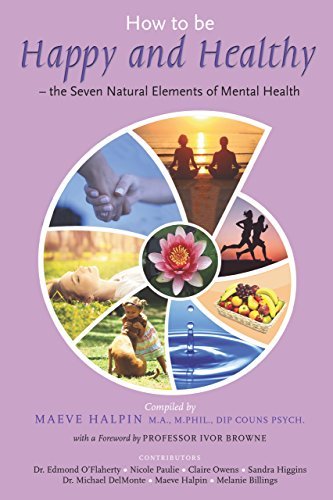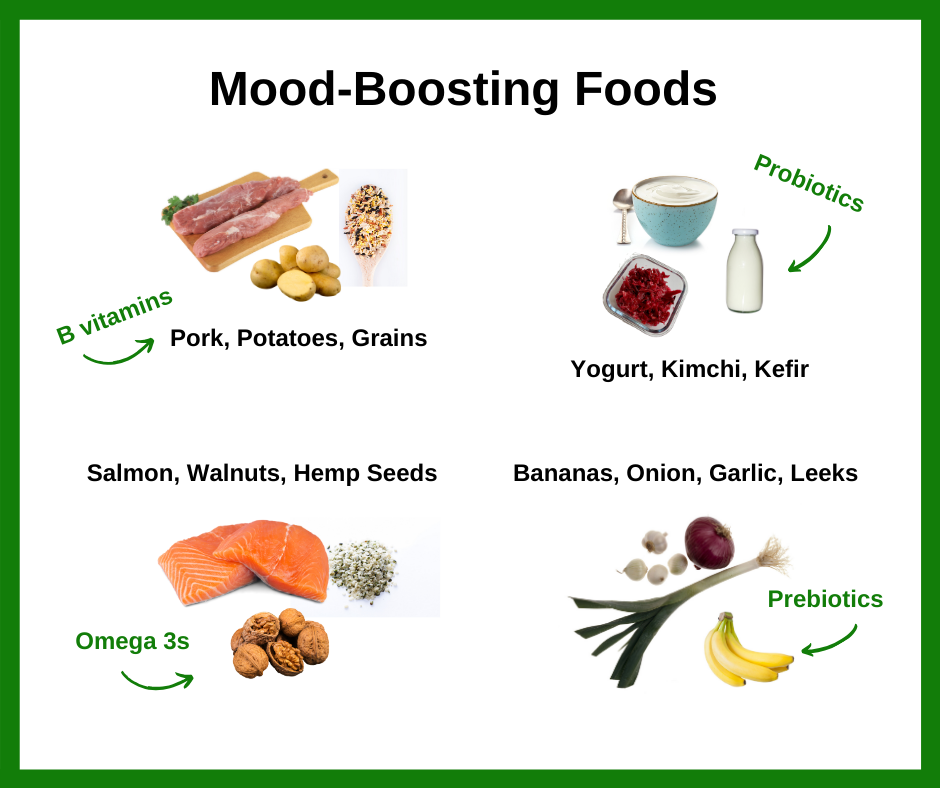Natural Ways to Stay Healthy and Happy
1. Exercise Regularly
Regular exercise is crucial for maintaining both physical and mental health. It helps improve cardiovascular health, build muscle strength, and boost mood by releasing endorphins, also known as the feel-good hormones. Physical activity can also help reduce stress, anxiety, and depression. Whether it’s going for a brisk walk, practicing yoga, or lifting weights, finding an exercise routine that you enjoy and can stick to is key to staying healthy and happy.
In addition to the physical benefits, regular exercise can also improve sleep quality, increase energy levels, and enhance cognitive function. It can help reduce the risk of chronic diseases such as heart disease, diabetes, and certain types of cancer. By incorporating exercise into your daily routine, you can improve your overall well-being and lead a happier, healthier life.

To make exercise a habit, start by setting realistic goals and creating a workout schedule that fits your lifestyle. Find activities that you enjoy and mix up your routine to keep things interesting. Remember to listen to your body and rest when needed to prevent burnout or injury. By making exercise a priority, you can reap the numerous benefits it has to offer.
2. Eat a Balanced Diet
A balanced diet is essential for maintaining optimal health and well-being. Consuming a variety of nutrient-dense foods, such as fruits, vegetables, whole grains, lean proteins, and healthy fats, can provide your body with the vitamins, minerals, and antioxidants it needs to function properly. Eating a well-rounded diet can help boost your immune system, improve digestion, and support overall health.

Avoiding processed foods, sugary drinks, and excessive amounts of salt and saturated fats is important for preventing chronic diseases, such as obesity, heart disease, and diabetes. Instead, focus on incorporating whole, unprocessed foods into your meals and snacks. Pay attention to portion sizes and listen to your body’s hunger and fullness cues to maintain a healthy weight.
In addition to eating nutritious foods, staying hydrated is crucial for overall health. Drinking an adequate amount of water each day can help improve digestion, regulate body temperature, and flush out toxins. Aim to drink at least eight glasses of water daily and limit sugary beverages and alcohol. By nourishing your body with the right foods and staying hydrated, you can support your physical and mental well-being.
3. Get Sufficient Sleep

Quality sleep is essential for overall health and happiness. Lack of sleep can lead to fatigue, irritability, and difficulty concentrating, as well as increase the risk of chronic diseases, such as obesity and heart disease. Aim to get seven to nine hours of sleep each night to allow your body and mind to rest and recharge.
Establishing a bedtime routine can help improve sleep quality. Try to go to bed and wake up at the same time each day, even on weekends, to regulate your body’s internal clock. Create a relaxing environment by dimming the lights, turning off electronic devices, and engaging in calming activities, such as reading or meditating, before bed. Avoid consuming caffeine, alcohol, or heavy meals close to bedtime, as they can disrupt sleep.

If you have trouble falling or staying asleep, consider incorporating relaxation techniques, such as deep breathing exercises or progressive muscle relaxation, into your bedtime routine. If sleep issues persist, consult with a healthcare provider to rule out any underlying medical conditions. By prioritizing sleep and creating healthy sleep habits, you can improve your overall well-being and lead a happier, more fulfilling life.
4. Practice Mindfulness and Stress Management
Practicing mindfulness and stress management techniques can help improve mental health and well-being. Mindfulness involves focusing on the present moment without judgment, which can help reduce anxiety, improve mood, and enhance self-awareness. By incorporating mindfulness practices, such as meditation, deep breathing, or yoga, into your daily routine, you can cultivate a sense of calm and clarity.

Stress management is crucial for maintaining overall health and happiness. Chronic stress can negatively impact physical health, including the immune system, digestive system, and cardiovascular system. Finding healthy ways to cope with stress, such as exercise, talking to a friend, or engaging in a hobby, can help reduce its negative effects on the body and mind.
Incorporating relaxation techniques, such as progressive muscle relaxation, guided imagery, or aromatherapy, into your daily routine can also help reduce stress and promote relaxation. Taking breaks throughout the day to practice deep breathing or go for a short walk can help clear your mind and improve focus. By prioritizing mindfulness and stress management, you can better cope with life’s challenges and improve your overall well-being.
5. Spend Time Outdoors

Spending time outdoors can have a positive impact on both physical and mental health. Exposure to natural light can help regulate the body’s internal clock, improve mood, and boost vitamin D levels. Engaging in outdoor activities, such as walking, hiking, or gardening, can help reduce stress, anxiety, and depression, as well as improve cognitive function.
Nature has a calming effect on the mind and body, which can help reduce feelings of fatigue and improve overall well-being. Whether it’s taking a stroll in the park, picnicking in the countryside, or swimming in a lake, spending time in nature can help you feel more connected to the world around you. By incorporating outdoor activities into your routine, you can improve your mental health and lead a happier, more fulfilling life.
To reap the benefits of spending time outdoors, aim to incorporate nature into your daily routine. Take short breaks throughout the day to step outside and breathe in fresh air. Plan outdoor activities, such as hiking or biking, on weekends or days off to immerse yourself in nature and recharge. By spending time outdoors and connecting with the natural world, you can improve your overall well-being and happiness.
6. Cultivate Positive Relationships
Maintaining positive relationships with family, friends, and loved ones is essential for overall health and happiness. Social connections can provide emotional support, reduce feelings of loneliness, and improve self-esteem. By cultivating meaningful relationships with others, you can enhance your sense of well-being and create a strong support system.
Spending quality time with loved ones, whether it’s through shared activities, conversations, or celebrations, can help improve mood and reduce stress. Building trust, respect, and communication in relationships can foster a sense of belonging and acceptance. By surrounding yourself with positive influences and supportive individuals, you can enhance your overall happiness and life satisfaction.
If you’re struggling to cultivate positive relationships, consider joining social groups, volunteering in the community, or attending events that align with your interests. Engaging in activities that bring you joy and allow you to connect with others can help strengthen relationships and create lasting bonds. By prioritizing positive relationships and nurturing connections with others, you can improve your mental health and overall well-being.
7. Practice Gratitude and Positivity
Practicing gratitude and positivity can help improve mental health and well-being. Gratitude involves acknowledging and appreciating the positive aspects of life, such as relationships, accomplishments, and experiences. By focusing on what you’re grateful for, you can shift your perspective from negativity to positivity and cultivate a sense of happiness and contentment.
Incorporating gratitude practices, such as keeping a gratitude journal, writing thank-you notes, or expressing appreciation to others, can help increase feelings of happiness and satisfaction. By acknowledging the good in your life, you can reduce stress, anxiety, and depression, and improve overall well-being.
Positivity involves maintaining a hopeful and optimistic outlook on life, even in the face of challenges. Practicing positive self-talk, reframing negative thoughts, and focusing on solutions rather than problems can help improve resilience and mental health. By cultivating a positive mindset and surrounding yourself with positive influences, you can enhance your overall well-being and happiness.
8. Prioritize Self-Care
Prioritizing self-care is essential for maintaining overall health and happiness. Self-care involves taking time to nurture your physical, emotional, and mental well-being through activities that bring you joy and relaxation. Whether it’s reading a book, taking a bubble bath, or practicing a hobby, finding activities that recharge and rejuvenate you is key to self-care.
Setting boundaries, saying no to commitments that drain your energy, and making time for yourself are all important aspects of self-care. Prioritizing your needs and listening to your body’s signals can help prevent burnout and improve overall well-being. By making self-care a priority in your daily routine, you can enhance your mental health and lead a happier, more fulfilling life.
In conclusion, incorporating natural ways to stay healthy and happy into your daily routine can have a positive impact on your overall well-being. By exercising regularly, eating a balanced diet, getting sufficient sleep, practicing mindfulness and stress management, spending time outdoors, cultivating positive relationships, practicing gratitude and positivity, and prioritizing self-care, you can improve your physical and mental health and lead a happier, more fulfilling life. Remember to listen to your body, prioritize your needs, and make self-care a priority to maintain optimal health and well-being.
FAQs
1. How often should I exercise to stay healthy and happy?
To stay healthy and happy, aim to exercise at least 150 minutes per week, or about 30 minutes a day, five days a week. This can include a combination of cardiovascular exercise, strength training, and flexibility exercises to improve overall fitness and well-being.
2. What foods should I include in a balanced diet?
A balanced diet should include a variety of fruits, vegetables, whole grains, lean proteins, and healthy fats. Avoid processed foods, sugary drinks, and excessive amounts of salt and saturated fats. Stay hydrated by drinking at least eight glasses of water daily and limit sug